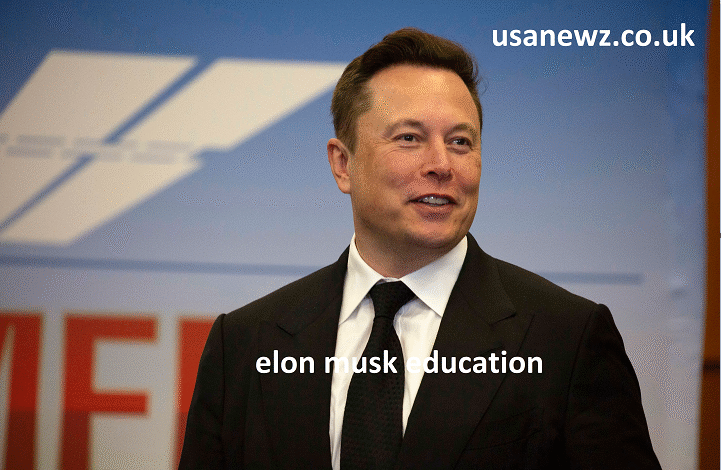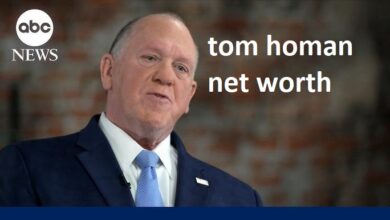Elon Musk Education: The Unconventional Path Behind a Visionary

Introduction: Why Elon Musk’s Education Matters
When people hear the name Elon Musk Education, they often think of Tesla cars, reusable rockets, or even ambitious projects like Neuralink. But behind his visionary pursuits lies a story that begins with something more relatable to all of us—education. Unlike many billionaires who dropped out of college early, Musk’s academic journey is surprisingly extensive. His story is filled with twists, self-learning, and unconventional decisions that played a huge role in shaping the way he thinks today.
Exploring Elon Musk Education’s education is not just about listing schools and degrees. It’s about understanding how his unique approach to learning—both inside and outside the classroom—contributed to his success. Musk is proof that education is not limited to formal institutions but is a lifelong pursuit, especially for those curious enough to keep digging deeper.
In this article, we’ll break down Musk’s schooling, university experiences, and his self-directed learning habits. By the end, you’ll see how his educational journey may not be one to copy exactly, but it certainly holds lessons worth learning from.
Early Schooling: From South Africa to the World
Elon Musk Education was born in Pretoria, South Africa, in 1971. His early schooling years were not exactly smooth. As a child, Musk was often bullied and spent more time with books and computers than with classmates. While some might view this as a weakness, it actually became the foundation for his love of knowledge and problem-solving. By the age of 10, Musk had already developed an interest in computing, teaching himself how to program on a Commodore VIC-20.
Musk’s school life wasn’t particularly glamorous. He attended Waterkloof House Preparatory School and later Pretoria Boys High School. Despite being a quiet student, he stood out for his intelligence and curiosity. Teachers and peers may not have fully understood him, but Elon Musk Education was already showing signs of being a deep thinker who questioned traditional approaches.
This period of his education highlights something many overlook: education isn’t only about grades. For Elon Musk Education, it was about cultivating curiosity and resilience. Even though he faced bullying, his early school experiences gave him time to develop interests in physics, technology, and science fiction—subjects that would later fuel his career ambitions.
University Journey: Chasing Knowledge Across Continents

At 17, Elon Musk Education made a bold move by leaving South Africa to pursue opportunities abroad. He first enrolled at Queen’s University in Canada in 1989. One reason was to avoid mandatory military service in South Africa, which conflicted with his personal values. But more importantly, Musk recognized that North America offered better opportunities in technology and entrepreneurship.
After two years at Queen’s, he transferred to the University of Pennsylvania (UPenn). There, he pursued a dual degree: a Bachelor of Science in Physics from the College of Arts and Sciences and a Bachelor of Arts in Economics from the Wharton School of Business. This combination is fascinating because it shows Musk’s ability to bridge two worlds—science and business. Physics gave him the analytical foundation to understand the laws of the universe, while economics taught him how markets and businesses work.
What’s impressive is that Musk didn’t just study for grades. He immersed himself in projects and side hustles, including renting out a house for parties to help pay tuition. These experiences reflect his practical mindset: learning isn’t only about theory, but also about applying knowledge in real life. His time at UPenn played a critical role in shaping the multidisciplinary thinking that would later define Tesla, SpaceX, and beyond.
The Stanford Chapter: Two Days and a Lifetime of Change
After graduating from UPenn, Musk set his sights on California, the heart of Silicon Valley. He briefly enrolled in a Ph.D. program in applied physics at Stanford University. On paper, this looked like the perfect next step—combining advanced science with access to the tech hub of the world. But in reality, Musk only lasted two days in the program before dropping out.
Why? Because the internet boom was unfolding in the mid-1990s, and Musk didn’t want to miss the opportunity. He believed that the internet had the potential to reshape the future, and waiting five more years to complete a doctorate wasn’t worth the opportunity cost. Instead of sitting in lecture halls, he co-founded his first company, Zip2, which provided online city guides for newspapers.
This decision may sound risky, but it reflects Musk’s bold approach to education: sometimes the best classroom is the real world. While many would fear leaving such a prestigious program, Elon Musk Education trusted his instincts. His choice highlights an important lesson—formal education is valuable, but recognizing the right moment to take action can be just as crucial.
Musk’s Self-Education: Learning Beyond the Classroom
One of the most remarkable aspects of Elon Musk Education’s education is how much of it came from self-learning. Musk is known to read obsessively, covering subjects ranging from physics and engineering to artificial intelligence and philosophy. In interviews, he has mentioned devouring two books a day during his younger years Elon Musk Education. This habit of deep reading allowed him to build knowledge far beyond what any curriculum could offer.
Take SpaceX, for example Elon Musk Education. Musk did not come into the aerospace industry with a background in rocket science. Instead, he taught himself by reading textbooks, consulting experts, and asking endless questions. According to his biographers, Musk once said, “I read books and talked to people.” That simple statement underscores his belief that education doesn’t end with a degree—it’s a continuous process fueled by curiosity.
Musk’s self-education is also evident in his ventures like Tesla and Neuralink. While he hires experts in their respective fields, Musk himself has enough knowledge to challenge ideas, push boundaries, and make informed decisions. His case proves that being a lifelong learner is not just admirable—it’s essential for innovation.
Lessons We Can Learn from Elon Musk’s Education
Elon Musk Education’s educational journey isn’t something everyone can—or should—replicate exactly. But it does hold valuable lessons for students, professionals, and lifelong learners alike. The first lesson is that curiosity is more powerful than credentials. Musk didn’t stop learning after leaving Stanford; in fact, that’s when his education truly accelerated.
Another lesson is the importance of blending disciplines. By studying both physics and economics, Musk gained a unique edge. He could understand the scientific principles behind his products while also recognizing how to market and scale them. This combination of technical and business knowledge is rare but incredibly powerful.
Finally, Musk’s story shows the value of courage in making educational decisions. Dropping out of Stanford after just two days might seem reckless, but for Musk, it was a strategic choice. Sometimes, education means knowing when to take the leap into the real world and start building something impactful.
Conclusion: The Unfinished Classroom
When you look at Elon Musk Education’s education, it’s clear that his success wasn’t built on traditional pathways alone. From his early schooling in South Africa to his university years in North America, and finally his lifelong commitment to self-learning, Musk embodies the idea that education is a journey, not a destination.
While many celebrate him as an inventor and entrepreneur, it’s his role as a student of life that often goes unnoticed. Musk continues to learn, adapt, and push into new frontiers, proving that curiosity is the greatest teacher of all.
So, if you’re ever wondering whether a degree defines success, Elon Musk Education’s story provides a different perspective. It’s not just about what school you went to—it’s about what you do with the knowledge you gain and how you continue to learn long after graduation.



